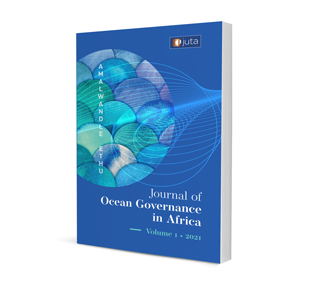
Integrated coastal management and marine spatial planning in South African law
Author: D Metuge
ISSN: 2521-5442
Affiliations: Senior Lecturer, University of Cape Town
Source: Amalwandle Ethu: Journal of Ocean Law and Governance in Africa, 2022, p. 22 – 44
https://doi.org/10.47348/JOGA/2022/a2
Abstract
South Africa’s national environmental management instruments, including the Integrated Coastal Management Act, 2008 (‘the NEM: ICMA’), provide statutory mechanisms for achieving cooperative governance in implementing environmental norms. Indeed, the NEM: ICMA provides for establishing integrated coastal management plans within the coastal zone, including South Africa’s coastal waters. In terms thereof, its provisions will prevail in the event of any conflict relating to coastal management. Moreover, the NEM: ICMA only requires that its provisions ‘be read, interpreted and applied in conjunction with the National Environmental Management Act, 1998 [NEMA]’. However, the recently adopted Marine Spatial Planning Act 2018 (MSPA) contains provisions that purport to override the provisions of any other instrument that conflicts with its requirements regarding plans that impact the marine environment. Certainly, it provides that ‘[a]ny right, permit, permission, licence or any other authorisation issued in terms of any other law must be consistent with the approved marine area plans’. This article explores the regulatory overlaps between the NEM: ICMA and the MSPA. It has identified potential areas of conflict with regard to the application of the NEM: ICMA, requirements for the approval of coastal management programmes and the contents thereof, coastal authorisations, coastal use permits, and coastal discharge permits. It confirms that the burden of regulatory consistency with marine spatial planning instruments and approved marine area plans is on other environmental instruments. It concludes with recommendations to prevent regulatory conflicts between the NEM: ICMA and the MSPA.